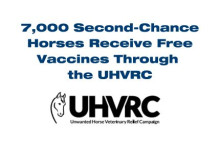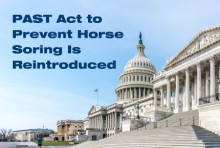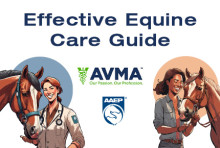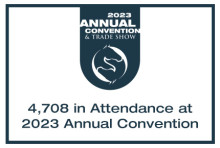Equine Disease Communication Center Providing Latest Updates on EHV-1
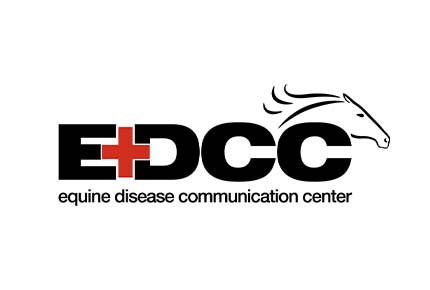
The Equine Disease Communication Center is closely monitoring EHV-1 outbreaks in California. EHV-1 most often causes a respiratory disease which is usually mild and self-limiting, but the infection occasionally leads to the life-threatening neurologic disease equine herpesvirus myeloencephalopthy (EHM).
To date (2.25.22) the following counties have confirmed EHV-1 cases.
San Mateo County: A total of 26 horses have been confirmed positive on this premises. Three (3) EHM cases (EHV-1 positive with neurologic signs) and twenty-three (23) EHV-1 febrile only cases have been confirmed. CDFA continues to actively monitor the situation.
Riverside County: A second outbreak in California is associated with Desert International Horse Show. To date, 21 horses have been confirmed positive. Three (3) confirmed EHM cases (EHV-1 infection with neurologic signs) and eighteen (18) confirmed EHV-1 fever only cases associated with this incident. CDFA continues to monitor the situation.
Orange County: A 16-year-old Warmblood mare in Orange County displaying neurologic signs on February 22 was confirmed positive for Equine Herpesvirus Myeloencephalopathy (EHM) secondary to equine herpesvirus-1 (EHV-1 non-neuropathogenic strain) on February 24. The horse was euthanized due to the severity of the clinical signs. Additionally, a 10-year-old Warmblood gelding on the same premises displaying fever only with no neurologic signs was confirmed positive for EHV-1 on February 24. The febrile gelding was part of a cohort of horses that attended the event premises in Riverside County that has an active EHM incident, and the neurological mare was exposed to the cohort of horses returning to the home premises from the event in Riverside County. Eighty-six (86) exposed horses on the home premises have been isolated and quarantined. CDFA will continue to closely monitor this situation.
Los Angeles County: A 20-year-old Warmblood gelding in Los Angeles County displaying neurological signs on February 22 was confirmed positive for Equine Herpesvirus Myeloencephalopathy (EHM) secondary to equine herpesvirus-1 (EHV-1 non-neuropathogenic strain) on February 24. The horse was euthanized due to severity of clinical signs. This gelding attended a show in Los Angeles County last week and event management has been notified. An investigation is pending to determine if this incident is epidemiologically linked to any other active EHM incidents. The exposed horses on the gelding’s home premises have been isolated and will be quarantined. CDFA will continue to closely monitor this situation.
We encourage horse owners and participants of all competitions to remember the importance of following biosecurity and best practices:
- Limit horse-to-horse contact
- Limit horse-to-human contact
- Avoid use of communal water sources
- Monitor your horse for clinical signs of disease, take temperatures daily and report any temperature over 102°F to a veterinarian
For the latest information about Equine Herpesvirus, visit https://equinediseasecc.org/disease-information/equine-herpesvirus
Also, keep up to date on information about equine infectious disease by signing up for email alerts or downloading the EDCC Disease Alert app by searching “EDCC Disease Alerts” at the App Store or Google Play Store.
About the Equine Disease Communication Center
The EDCC is an industry-driven information center which works to protect horses and the horse industry from the threat of infectious diseases in North America. The EDCC is based in Lexington, Ky., at the American Association of Equine Practitioners’ headquarters, with a website and call center hosted courtesy of US Equestrian. The EDCC is funded entirely through the generosity of organizations, industry stakeholders and horse owners. To learn more visit www.equinediseasecc.org or sign up for the latest disease alerts.
